- Home
- Anne Easter Smith
Queen By Right Page 9
Queen By Right Read online
Page 9
“We were laughing, Cecily, because the likelihood of a child slipping into this world in five minutes after the first pain is one in a million. We all know how long it takes to birth a first or second child—oft-times a whole day—because we have either experienced it ourselves or been in attendance.” She gave a short laugh. “Although you, my dear, as the fourteenth, did catch us all napping. You were here within the hour!” she recalled. “But today you will watch and learn what happens so that you will not be surprised when your turn comes.” She held up her arms for the braided belt to be tied at her waist. “And a simple cap today, I think, ladies, and then we must go.”
Cecily tugged at her mother’s skirt as the little procession made its way back to the west wing. “If ’tis something you can laugh at, then why was Alice so afraid?”
“Poor child. I heard her first lying-in took more than a day and a night. You forget that she did not have the advantage of a mother or sisters to teach her. Now cease your questions for once. Just watch and listen.”
Alice’s chamber was a hive of activity when the countess arrived. Joan nodded approvingly as pipkins of water were boiled over the roaring fire and Alice’s two attendants tore strips of linen for swaddling bands and washing their mistress. Cecily was the last into the chamber. As she was about to close the door, Rowena stayed her. “Nay, Lady Cecily, leave the door ajar to ease the birthing pains and let the Devil slip out.” Cecily did as she was told, noting but not questioning the custom.
A moan from the bed announced another spasm. Cecily saw her sister-in-law propped up on pillows, the blankets thrown aside and only a sheet covering her bent knees. Joan and the midwife each held one of Alice’s hands and conferred over the swollen body.
“It be a mite early, my lady,” the elderly midwife murmured, “but Lady Alice be strong and the babe’s stars be in a good place, so the soothsayer told me when I arrived. It’d be better for the child if he got his own mother’s milk, if I may be so bold to say, my lady. But the wet nurse be waiting, in case.”
Joan pursed her lips and nodded. She did not approve of ladies of rank nursing their own children. Breast-feeding kept a woman from conceiving, she knew, and it spoiled the look of her paps more rapidly, but she respected the wise woman’s ancient knowledge and did not gainsay her. After all, the woman had seen three of Joan’s children into the world, including this child’s father.
“So be it,” Joan replied, gripping Alice’s hand as the young woman writhed in pain again. “Although for a short time only.”
The midwife raised the sheet to better examine her charge’s progress. Her gnarled fingers probed and prodded as she clucked and muttered to herself. Cecily stood as far away as she could from the horrifying scene and winced as Alice shrieked with more frequency, calling out to God, the Virgin, St. Monica, and even the Devil as she flailed about, trying to expel her child. This fearful scene lasted for a full six hours before the midwife called for the birthing chair and Alice was helped onto it. Cecily watched with worried fascination as Alice grunted like a wild beast, and finally, with the midwife’s ceaseless encouragements, released a foam-flecked head.
“’Tis almost here, Alice!” Cecily heard herself announce. Tears of joy ran down her cheeks as the rest of the slippery body was deftly extracted from the birthing passage by the midwife’s gentle hands. Exhausted, Alice slumped against the sloping back of the chair, and Cecily thought she seemed removed from the extraordinary miracle her body had been witness to.
“You have a daughter, my lady,” the midwife said, as though she were commenting on the weather and, to Cecily’s horror, she turned the baby upside down and spanked its slimy rump. A delicate objection to this indelicate treatment came from the tiny pink creature, making Joan laugh. “In truth, ’tis a young lady you have birthed, my dear.”
Upon hearing her daughter’s cry, Alice thrust out her hands to take the child and caught sight of Cecily gazing open-mouthed from across the room. “Then she shall be called Cecily, after her ladylike aunt. How should you like to be her godmother?” Alice asked, smiling through her exhaustion. “What say you, Cecily?”
Cecily clasped her hands to her chest and cried, “Are you sure? Oh, I should be so proud, Alice.”
Once the midwife had settled the young mother back into a freshly made bed, little Cecily, now wrapped in fresh linen, was put into her namesake’s arms. Cecily was awed with the perfection of God’s creation. “Praise be to Him, who has wrought this miracle,” she murmured to the screwed-up little face under hers. “But by the sweet Virgin, I hope you grow up prettier than you are now.”
When Alice was finally left in the care of the nurse and two attendants, Cecily followed her mother out of the room with Rowena a step behind.
“I tell you this, Rowena,” Cecily confided in a whisper. “I think I shall avoid having children. Or perhaps one, so I will know what ’tis like to hold my own babe. But how mother had so many after seeing what Alice has been through, I shall never know.”
Rowena was shocked by Cecily’s candor, frowned a warning, and jerked her head at Joan’s stiff back. “I believe his grace of York will be the one to determine that, my lady,” she whispered back. “He may have a dynasty in mind for the two of you.”
“Then he may have to do it all by himself!” Cecily retorted.
5
Leicester, Summer 1426
With Alice recovered and the Erber running smoothly, Joan decided it was time she and Cecily went north, this time to Leicester to join the king. Baby Cecily was a noisy child, demanding to be fed at all times of the day and night, but she was thriving, and after the first two anxious weeks, she was given to the wet nurse. Alice endured a few days of unpleasant consequences due to halting the suckling, but she assured her mother-in-law that she could manage by herself until her husband was able to take them all to Bisham Manor in Berkshire, seat of the earls of Salisbury. She wanted to spend the summer with her two children in quiet tranquility under the beeches at that childhood home on the banks of the Thames.
On the first day of May, the small retinue set out from the Erber’s high-walled courtyard into Carter Lane and Dowgate. Encountering throngs of young people with garlands and flowers making their way to Chepeside and the maypole, the captain of Joan’s escort cursed himself for agreeing to leave on this the merriest of holidays and led the way toward Aldersgate along quieter lanes that could only just accommodate the large carriage. Cecily peeked through the curtain with longing at the exuberant young faces singing and laughing on the route, and resolved that she too would participate in the very first May Day after she was wed.
Joan had no time for such foolishness, telling her ladies, “’Tis a pagan holiday and leads to immorality among the young. I am surprised that the bishops do not put a stop to it,” she declared. “If my brother ever becomes a cardinal, I shall suggest he ban the festivities.”
Cecily rolled her eyes at Rowena, who pretended not to notice but covered her mouth to hide a smile.
“What is so bad about dancing around the maypole, my lady?” Cecily asked.
Joan pursed her lips. “’Tis a pagan festival of fertility. It leads to lust and wanton dalliance,” she retorted. “And I have kept my daughters from it for that reason.”
“Aye, well we know,” muttered Cecily, stroking Jessamine’s silky back, pleased she now understood something about men’s lust. Why is Mother so opposed to babymaking when ’tis certain she has engaged in it at least fourteen times?
CECILY HAD NEVER seen anything as magnificent as the great hall of Leicester Castle, even at Raby, she decided. She stared about her as the brilliantly clothed courtiers milled about, laughing and talking. Looking down the hall to where the noonday sun was streaming through two lofty stained-glass windows, Cecily was unaware of the attention she was attracting. While in London, Joan had brought her own and Cecily’s wardrobes up to date, including the obligatory mourning gowns. Cecily liked the purple silk dress that floated around her from t
he wide belt above her girlish waist. She thought it made her look older, especially as Joan had insisted on hiding Cecily’s mass of golden hair under two horned templettes of stiffened fabric fastened to the sides of her head and decorated with gold filigree netting. Draped over the horns—thus creating a heart shape for her face—a piece of white silk with dagged edges floated down her back. Around her neck hung her sapphire, and Richard’s gold-and-ruby betrothal ring weighted her index finger. Joan was gratified to see more than one admiring woman murmur to her neighbor and nod toward Cecily.
And then Cecily saw Richard coming toward her, a welcoming crooked grin on his face. After watching him make a reverence to the countess, Cecily held out her hand for him to kiss, which he did with enthusiasm, taking both hands and raising them to his lips.
“I hardly recognized you, Cis,” he told her, sliding her arm through his. “You outshine even the beautiful Eleanor Cobham.”
“Who?” Cecily asked, her cheeks pink with the pleasure of seeing him again and satisfaction from his graceful compliment. “Is she here?”
“Oui, ma belle,” he said, showing off his newly acquired courtly skills. “She is the woman in green and gold silk over there,” he said, nodding in the woman’s direction. He had forgotten about Joan, who was searching for Richard Neville among the courtiers but whose sharp ears never missed a piece of interesting information.
“So that’s the common-kissing wagtail that has so beguiled Gloucester,” she murmured, discreetly examining Eleanor from under her lashes. “Compared with his whey-faced wife Jacqueline, I suppose I can see why.”
Unused to hearing such vulgar words from the countess, who looked as prim as a nun in her widow’s wimple, Richard glanced nervously at Cecily. To be sure, she was too young to understand what a wagtail was, he decided, and diverted her attention to the musicians’ gallery, where four trumpeters prepared to welcome the king to the hall with a fanfare.
Once the long notes died away and the small procession entered from the king’s apartments, Richard pointed out the main characters. “Humphrey of Gloucester,” he said, indicating a stocky man with wide-set eyes and a sensuous mouth in a handsome face who wore a knee-length purple gown. He chuckled. “I doubt he is pleased to have to walk side by side with Bishop Beaufort. They were made to reconcile in February, but ’tis not evident in their posture today.”
Cecily had recognized her Uncle Henry, his tall, lanky body dwarfing his companion, his wealth apparent in the dazzling gold and jewels he was wearing. She knew her clever uncle had amassed a fortune second to none. He had even made loans to the king, Joan had told her proudly. But Cecily did not know what Richard meant by “made to reconcile” and determined to ask him later.
“There is my lord of Bedford,” Richard whispered, “and his lady, Anne of Burgundy. She has impressed everyone with her grace and kindness, and indeed she has even sought me out particularly to ask after my well-being.”
Cecily looked with interest at the tiny, thin young woman with the elaborately rolled and wrapped headdress that was almost as big as she was. Her lively brown eyes, the most attractive feature of her rather plain countenance, were scanning the courtiers near her for familiar faces, which were now bowed reverently over bended knees or in graceful curtseys. Cecily was more curious, though, to see John, duke of Bedford, for the first time. Henry the Fifth’s most trusted brother and now regent, Bedford was a broad-shouldered, brown-haired man, with finely arched brows over steely blue eyes and an aquiline nose. As if he knew she was staring at him from across the room, Bedford turned to look in her direction, and Cecily was relieved to find warmth in his gaze. She smiled shyly at him, and he, not knowing who she was, merely inclined his head politely. Then he escorted his wife to her place with the other ladies near the raised platform and mounted the steps to his own position behind the throne, piled high with cushions.
“Duke John has taken a liking to me as well, Cis,” Richard murmured, and Cecily heard excitement in his voice. “It may be that I go with him to France when he returns.”
Cecily stiffened, her hand gripping his arm tightly enough to make Richard frown. “France? Why would you go to France?” she whispered. “Your place is here in England—and, when we are married, with me.”
Richard grinned. “I will join the army in Normandy, I hope, if your mother gives me leave. I want to be part of the victories that I am certain will rid the English territories of the French once and for all. Bedford is a great commander and I will learn much.”
Cecily stared at him. “You want to go and fight?” she asked. “Why? Now that we can be together.” And then she remembered the day of the hunt when they had shared their hopes and dreams. “You still wish to be a commander, is that it?”
She did not get an answer. The trumpeters blew again in earnest to announce the entrance of the king and his mother. Standing on tiptoe, she caught a glimpse of the boy wearing a gold crown and a purple mantle trimmed with ermine. She was transfixed by being in the presence of the king for the first time in her life.
On his knees, Richard tugged on her skirts. She was now the only one in the room standing. Five-year-old Henry caught sight of her, and his big blue eyes registered her face before he continued slowly past his kneeling courtiers, an earl holding up his heavy mantle. The crown, too, weighted the boy down, Cecily could see, and she was sure he must want to throw it off. Twenty-five-year-old Queen Catherine held her son’s hand, giving him strength, and when he would have stumbled on the first step of the dais, she bore him up with a kind word and lovely smile of encouragement. Cecily recognized the same maternal strength that she was lucky enough to enjoy in her own mother. Although a widow’s wimple accentuated Catherine’s hollow-eyed sadness, the Valois princess was very beautiful, Cecily decided, sinking to her knees.
“Your mother will present you to the king,” Richard told her, when they were allowed to stand again. “I can be with you or not, Cis. As I have met him on more than one occasion, it matters not to me.”
Cecily looked at him askance. “Dickon, it would seem to me that the more you are seen by the king, the more you will be in favor when he is grown. Am I not right? Certes, you must go with me. I shall want to be presented as your future duchess so that he does not forget me either.”
Richard was taken aback by her fledgling grasp of court politics, but before he could properly acknowledge it, a chamberlain reached Joan and begged her to follow him to the dais. The countess twitched Cecily’s veil in place, centered the sapphire on her daughter’s flat chest, and led the way behind the officer.
“The lady Joan Neville, countess of Westmorland, and her daughter, the lady Cecily Neville, your grace,” the chamberlain called for all to hear. He leaned forward to catch Richard’s name, but he was superseded by the little king.
“’Tis my cousin Richard, duke of York,” Henry cried without waiting and, turning to his mother, he asked in his high, childish voice, “C’est juste, maman?” Catherine nodded and smiled, and Henry was pleased with himself for remembering yet another title. “You are right welcome at our court, ladies.” He rattled off the rote greeting he had been taught. “And you too, my lord duke.” Catherine bent and whispered something, and the little king was quick to add, “My mother, the queen, and I wish to offer cond . . . con . . .” He turned to his mother for help.
“Condolences, Lady Joan, upon the death of my son’s much respected councillor, your husband Earl Ralph,” Catherine finished for him. “N’est-ce pas, Henri?” and Henry nodded gratefully.
Cecily and Joan were still in deep obeisance, but Cecily looked up and caught the boy’s eye.
“Oh,” Henry said pointing at her. “You were the one standing just now when everyone else was on the ground.” A few anxious intakes of breath were heard from those close to the Neville women.
Joan was mortified. “’Tis her first time at court, your grace,” she told him, drawing herself up and attempting to hide Cecily with her wide sleeves. “And she mis
ses her father’s influence. Believe me, she will be punished later,” she said, venturing an apologetic smile at Catherine. “I can assure your grace my punishment will be far more severe than your displeasure.”
Henry’s eyes spoke apologetically to Cecily’s crestfallen face, cheering the chastised Cecily in a moment of understanding between children.
Catherine laughed and her face lost its haunted look. “Tiens, Henri, mon fils,” she murmured to him, patting his hand. “Madame la Comtesse, she is a very good mother, I think,” she said in her accented English. She looked at Cecily and stretched out her hand. “Ma chère fille, think no more about it. We are not offended, are we, monseigneur?” she asked Henry, who shook his head. “Voilà, comtesse, there is no need to punish her.” Joan could do nothing but incline her head in assent.
“Viens là, milady Cecille,” the queen continued. “You are soon to marry milord of York, non?” she asked, as Cecily mounted the four steps to the throne and knelt again. Joan held her breath and prayed to St. Nicholas to guide her child in courtly manners. She caught the eye of her brother, who was standing a few paces behind the throne, arching a brow. Henry Beaufort was known for his brilliant legal mind, not for his sense of humor.
Cecily knew she must beg the king’s pardon, and taking advantage of Henry’s empathy a few minutes earlier, she kissed his small hand with a pleading look. “Forgive me, your grace, I did not mean to offend, but I was so captivated by your majesty that, like Lot’s wife, I was turned to a block of salt.”
Joan almost fell sideways off the step. She heard Richard choke on a laugh behind her, and a smothered guffaw came from one of the councillors ranged behind the king.
But five-year-old Henry was puzzled by this explanation. “Lot’s wife, Lady Cecily? Who is she? Maman, do you know?”
Queen Catherine was not fooled by Cecily’s pretty speech, but she was amused by the young girl’s gall. She told Henry that it was a story in the Scriptures that he would learn one day and then brought the subject back to Cecily’s impending marriage.

 This Son of York
This Son of York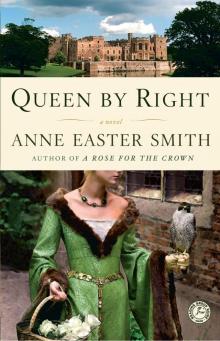 Queen By Right
Queen By Right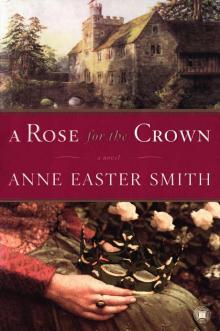 A Rose for the Crown: A Novel
A Rose for the Crown: A Novel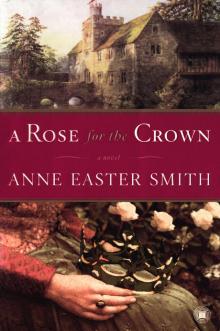 A Rose for the Crown
A Rose for the Crown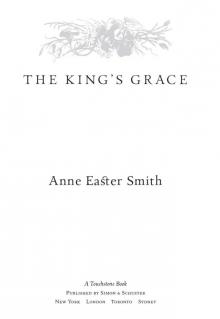 The King's Grace
The King's Grace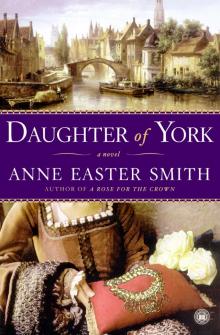 Daughter of York
Daughter of York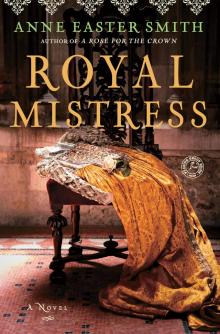 Royal Mistress
Royal Mistress